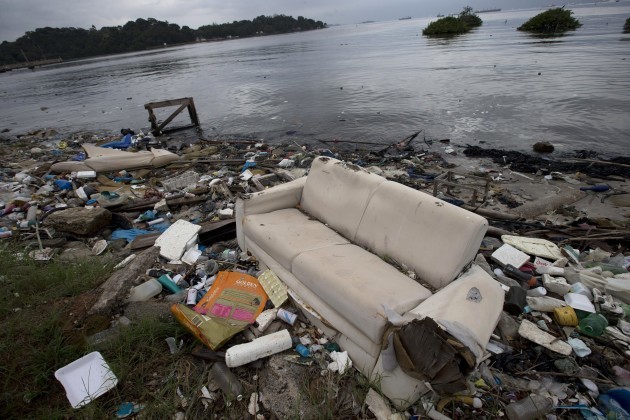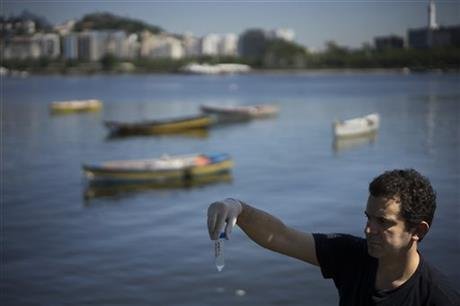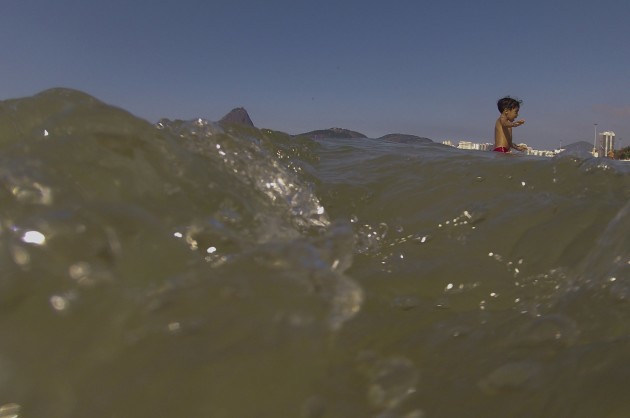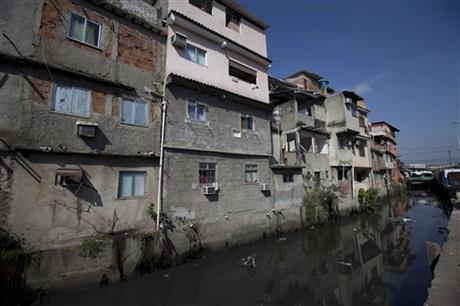ATHLETES COMPETING IN next year’s Summer Olympics in Rio de Janeiro will be swimming and boating in waters so contaminated with human feces that they risk becoming violently ill and unable to compete in the games, an Associated Press investigation has found.
An AP analysis of water quality revealed dangerously high levels of viruses and bacteria from human sewage in Olympic and Paralympic venues — results that alarmed international experts and dismayed competitors training in Rio, some of whom have already fallen ill with fevers, vomiting, and diarrhea.
It is the first independent comprehensive testing for both viruses and bacteria at the Olympic sites.
Brazilian officials have assured that the water will be safe for the Olympic athletes. But the government does not test for viruses.
Extreme water pollution is common in Brazil, where most sewage is not treated. Raw waste runs through open-air ditches to streams and rivers that feed the Olympic water sites.
As a result, Olympic athletes are almost certain to come into contact with disease-causing viruses that in some tests measured up to 1.7 million times the level of what would be considered hazardous on a Southern California beach.
Despite decades of official pledges to clean up the mess, the stench of raw sewage still greets travelers touching down at Rio’s international airport. Prime beaches are deserted because the surf is thick with putrid sludge, and periodic die-offs leave the Olympic lake, Rodrigo de Freitas, littered with rotting fish.
“What you have there is basically raw sewage,” said John Griffith, a marine biologist at the Southern California Coastal Water Research Project. Griffith examined the protocols, methodology, and results of the AP tests.
“It’s all the water from the toilets and the showers and whatever people put down their sinks, all mixed up, and it’s going out into the beach waters. Those kinds of things would be shut down immediately if found here,” he said, referring to the US.
Vera Oliveira, head of water monitoring for Rio’s municipal environmental secretariat, said officials were not testing viral levels at the Olympic lake, the water quality of which is the city’s responsibility.
The other Olympic water venues are under the control of the Rio state environmental agency.
Leonardo Daemon, coordinator of water quality monitoring for the state’s environmental agency, said officials were strictly following Brazilian regulations on water quality, which are all based on bacteria levels, as are those of almost all nations.
“What would be the standard that should be followed for the quantity of virus? Because the presence or absence of virus in the water … needs to have a standard, a limit,” he said. “You don’t have a standard for the quantity of virus in relation to human health when it comes to contact with water.”
More than 10,000 athletes from 205 nations are expected to compete in next year’s Olympics. Nearly 1,400 of them will be sailing in the waters near Marina da Gloria in Guanabara Bay, swimming off Copacabana beach, and canoeing and rowing on the brackish waters of the Rodrigo de Freitas Lake.
The AP viral testing, which will continue in the coming year, found not one water venue safe for swimming or boating, according to global water experts.




